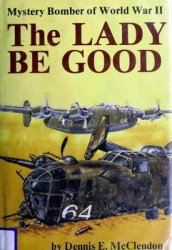•The term simony refers to the magician Simon Magus, mentioned in the New Testament Book of Acts. Simon tried to pay the apostles Peter and John in order to gain the Holy Spirit's power to heal the sick and the lame, and Peter cursed him for behaving as though holy powers could be bought and sold.
• The nineteenth-century poet and painter Dante Gabriel Rossetti (1828-1882)—who was actually born with the name Dante—modeled much of his work after that of Dante Alighieri.
• One of the most famous quotes from the Divine Comedy is the phrase that appeared on the gates of Hell, sometimes translated as "Abandon all hope, ye who enter here."

Dante
By writing primarily in Italian, Dante Alighieri—usually referred to simply as Dante—helped usher in an era of increased literary activity throughout Western Europe. After Dante, writers were much more likely to compose in their native languages, rather than in Latin. The latter had remained the language of educated men throughout the Middle Ages, despite the fact that there was no longer an active community of Latin-speakers. Thus it was a "dead language," and Dante's use of Italian brought a refreshing new energy to literature, which in turn helped lay the groundwork for the period of renewed interest in learning known as the Renaissance (RIN-uh-sahnts; c. 1300-c. 1600).
Dante grew up in the city of Florence, which would become home to a number of influential writers and painters. After studying at several great universities, he became involved in complex political struggles that consumed Italy for many years. When in 1302 a rival group triumphed, he was exiled from (forced to leave) Florence with his wife Gemma Do-nati, who he had married in 1297. He would spend the remaining twenty-nine years of his life in a variety of cities throughout Italy.
In 1293, Dante had completed his first great work, La vita nuova (VEE-tuh NWOH-vuh; "New Life"), a collection of love poems to a woman he barely knew. This was Beatrice Portinari (1266-1290), whom Dante had first met at the age of eight. He had loved her from that time, though perhaps "admired" is a better word: Dante and Beatrice were never lovers, nor was Dante's affection for her that of a lover. Rather, he saw her as a sort of guiding spirit, an image of purity who inspired his work.
La vita nuova honored Beatrice after her death, and later she would figure in one of the world's greatest literary masterpieces: the Divine Comedy, which Dante began writing in 1308 and completed just before his death in 1321. He also wrote a number of other works, including poetry and nonfiction.




 World History
World History









